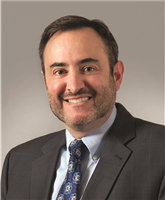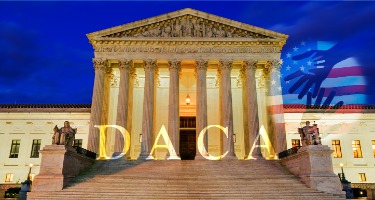A new federal regulation makes it easier for U.S. employers to recruit and hire foreign professionals whose employment with their prior sponsors terminated within the preceding 60 days. It is now quicker and less expensive to hire these recently unemployed H-1B and other temporary workers (foreign professionals) whose skills and abilities employers need to support their businesses.
Foreign professionals working temporarily in the United States, along with their dependents, were previously required to depart the country immediately once their sponsored employment ended, whether by resignation or a layoff. There was no grace period.
This meant that upon termination, these professionals had no time to finalize their affairs, were unable to remain in the country lawfully in order to seek alternate employment or a new visa status, and immediately became deportable from the United States.
While U.S. Citizenship and Immigration Services (USCIS) has the discretion, upon request by a new employer, to excuse a gap in lawful status when a sponsored individual has already left his or her prior job, the agency considers these requests for good cause on a case-by-case basis, and historically, has been reluctant to forgive status gaps of more than 30 days.
Now when a foreign professional loses his or her job, the new law in most cases grants him or her a 60-day grace period, during which he or she can remain legally in the United States and seek sponsorship by a new employer. This benefit also logically extends to U.S. companies seeking to fill open positions, as they can now enhance their search to include foreign professionals still in the United States whose employment terminated in the preceding two months. Before the new regulation took effect, employers faced difficulties when a foreign professional who had already left a previous job was a recruiter’s top candidate. Employers were faced both with delays in the onboarding process while a new work permit was adjudicated and with the costs and delays of international travel since the employee would typically need to apply for a new visa at a U.S. consulate abroad, or at a minimum, cure the gap in status through departure from the United States and re-entry.
An interesting feature of the new regulation is that it permits a foreign professional to use the grace period only one time—for up to 60 consecutive days—“during each authorized validity period.” The practical impact of this limitation is unclear since foreign professionals may be granted multiple validity periods while working in the United States, depending on the number of times U.S. employers petition for their services.
For example, let’s say an H-1B worker is laid off, and after a month of unemployment (well within the new authorized grace period), a second employer successfully petitions for her services and to extend her stay in the United States. A year later, she is laid off again. After another month-long job search, a third employer petitions to extend her stay in the United States, arguing that the employee became entitled to a new 60-day grace period once USCIS granted the second employer’s request to extend the validity of the worker’s employment. This argument is reasonable based on the plain language of the rule and should be argued by immigration counsel in appropriate circumstances.
Another question is how the new grace period applies to employers seeking to rehire foreign professionals after terminating them. This can be especially tricky for employers of H-1B, H1B1, and E-3 professionals, as these employers must comply with wage obligations imposed by the U.S. Department of Labor (DOL). Under DOL rules, these employers may be held liable for paying terminated foreign professionals their full salaries until the employer formally withdraws the approved petition. So while the new rule would allow an H-1B employer to terminate a worker for up to 60 days and rehire him or her without jeopardizing the worker’s legal status, given its DOL obligations—and the presumption that employers don’t wish to pay employees after terminating them—the employer could not simply have the employee resume the previously approved employment since DOL rules would prompt the employer to withdraw the prior petition in order to avoid continuing wage liability. Instead, to effect the rehire, the employer would need to file a new petition with a request for a new employment validity period for the worker, and as a result, the employee would ostensibly benefit from another 60-day grace period upon a subsequent termination.
In addition to the 60-day grace period, the new regulation also brings other temporary visa categories, including E treaty traders and investors, L-1 intracompany transferees, and TN NAFTA professionals, in line with a different type of grace period that has been part of the H-1B regulations for many years. Specifically, immigration rules now explicitly permit professionals in these visa categories to enter the United States up to 10 days before their approved employment begins and to remain in the United States for up to 10 days after the approved period of employment expires. Even when foreign professionals had been intent on repatriating to their home countries upon the conclusion of a temporary U.S. assignment, the absence of this grace period made it extraordinarily difficult for them to manage the conclusion of their employment and make an immediate departure. The expansion of this grace period to a larger number of visa categories properly recognizes the commercial realities of a modern business environment.

































